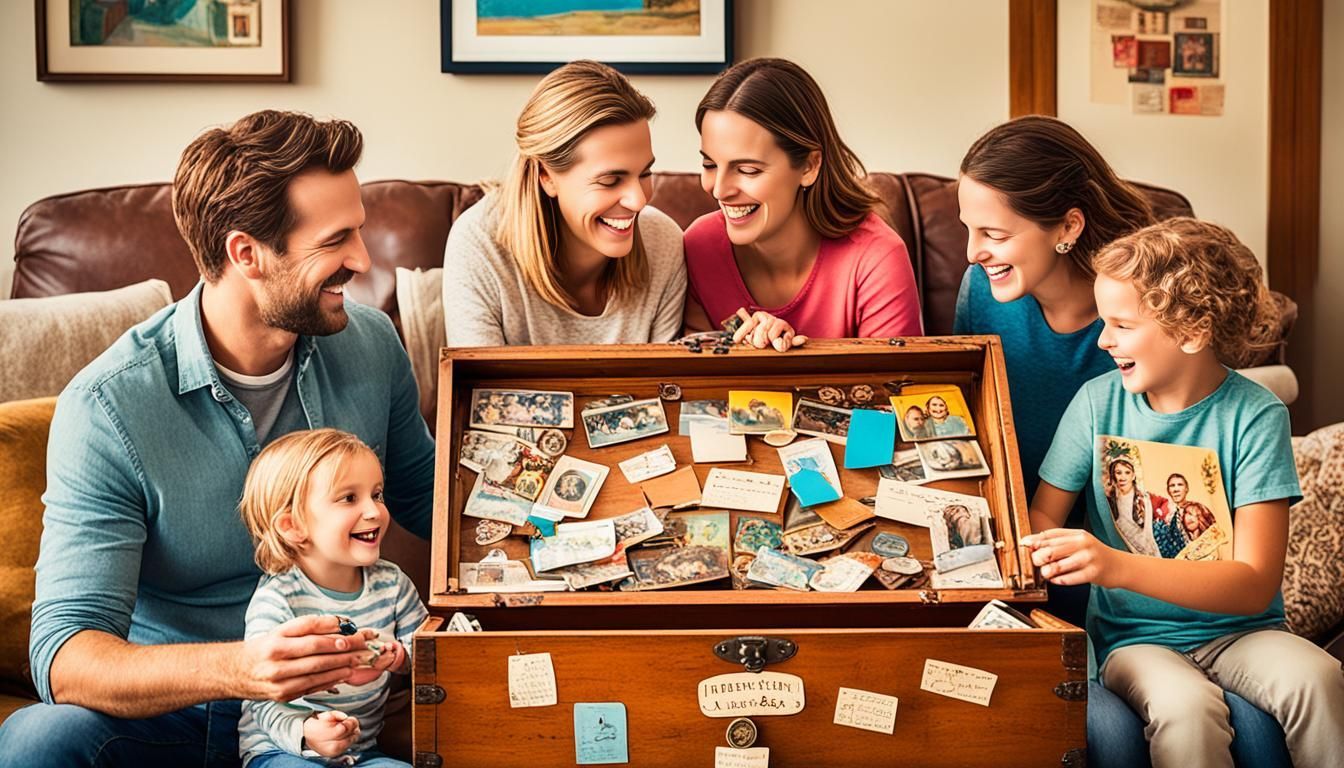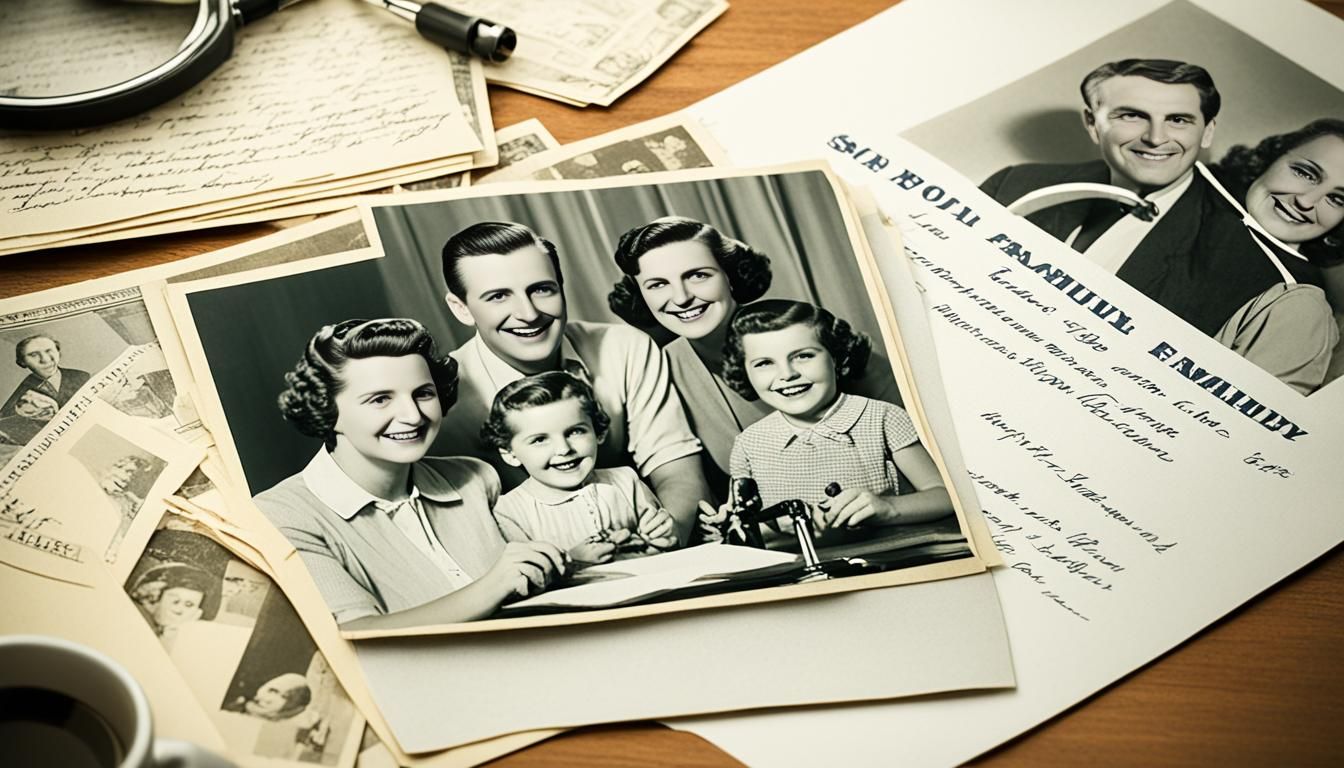Finding Joy: Appreciating Life After Losing a Loved One.
Finding Joy: Appreciating Life After Losing a Loved One.
How can we find joy and appreciate life again after losing someone we love?
Life after losing a loved one is very tough. We all deal with loss differently. But, accepting change is a must to move forward. The void left by a loved one can surprisingly help us grow. We learn to cherish small moments again, finding new purpose and joy. This path isn't just about dealing with loss. It's also about healing and seeing the good during tough times.
Grief hits harder when we lose someone close. But, stories from others give us strength. Moving forward means keeping their memory alive and finding joy in new experiences. By doing so, we build a hopeful and thankful space, healing naturally over time.
Key Takeaways
- Coping with loss varies greatly among individuals.
- Meaningful relationships are key to finding joy and happiness.
- Resistance to change is natural, especially after a significant loss.
- The path to healing is unique but achievable through acceptance and transformation.
- Honoring lost loved ones by living a fulfilling life is a powerful way to find joy again.
We will look into grief stages, the need to grieve properly, and how turning grief into growth leads to a peaceful, positive life.
Understanding the Grieving Process
Grieving the loss of a loved one is a deeply personal journey. It's filled with complex emotions that vary widely among individuals. This reminds us there is no right or wrong way to grieve. Acknowledging and understanding these feelings is crucial for recovery and finding positivity.
The Stages of Grief
Elizabeth Kübler-Ross, a Swiss-American psychiatrist, introduced the five stages of grief . These stages are: denial, anger, bargaining, depression, and acceptance. They help us grasp the emotional rollercoaster of losing someone close. For example, after my dad died, I found myself in these stages often, attending two funerals in a short span.
Faith plays an essential role during periods of loss, acting as a cornerstone, providing comfort, and helping to navigate the stages of grief .
Recognizing these stages shows us that grief doesn't follow a straight path. It highlights that getting over sorrow is unique and non-linear for everyone. Each stage plays a part in the broader journey of recovery, where slowly, moments of light begin to appear.
Allowing Yourself to Grieve
It's essential to let ourselves grieve to heal. Understanding that grief typically lasts about three years helps. During this time, finding inner peace and keeping memories alive helps with the loss.
Supporting a grieving person needs patience and empathy. Offering help and remembering significant dates like birthdays can deeply affect their healing. We must understand we can't fix their grief, but we can support them through it.
In my own life, my husband and I shared 29 years of marriage. Despite his passing, remembering our love through memories and a book I wrote keeps his spirit alive. This book, titled "When You Lose Someone You Love" , was published on what would have been his 58th birthday. Embracing grief allows us to face our mortality and find a way towards healing.
Finding Peace and Positivity
The journey to find peace after losing someone is very personal and filled with many emotions. Rebuilding life after such loss means we must see the power of grief to change us. It's about seeing beauty in daily life despite the pain. Each person deals with loss in their own way, searching for their own path to heal and find peace.
Embracing Life Post-Loss
Accepting life after loss means understanding our loved ones live on in our memories and the world. Loss might shake our peace and perspective, making us feel out of touch. But realizing that everything is energy, and energy never dies, helps us see our loved ones in the small things.
Shifting our view is key when coping with loss . Seeing our loved ones in things like a flower or a sunset can bring peace. It helps us keep a connection with them even after they've passed.
Accepting the loss of a loved one and finding peace againcan significantly help in this journey.
Transforming Grief into Growth
Turning grief into growth means accepting change and how it transforms us. It's comforting to believe our loved ones haven't just vanished. Life always changes, and fighting it only makes peace harder to find. By accepting change, we let our grief help us grow.
Trying new things and enjoying the simple moments can help turn grief into growth. This doesn't just bring peace after a loss. It also makes us value life more. By accepting these changes, we find peace and positivity.
Everything in the universe is energy, and energy is never lost.
| Aspect | Description |
|---|---|
| Finding Peace After a Loss | Acknowledging that our loved ones continue to exist in different forms and integrating their memory into our lives. |
| Rebuilding Life After Losing a Loved One | Maintaining a connection with the departed and finding new ways to honor and remember them. |
| Embracing Life Post-Loss | Viewing the beauty in the world around us through the lens of shared memories and experiences. |
| Transforming Grief into Growth | Embracing change and personal transformation to foster personal growth and a deeper appreciation for life. |
By following these principles, we can find peace, rebuild our lives, and turn grief into growth. This helps us live fully and honor our loved ones' memories.
Conclusion
Finding joy after loss takes time, patience, and often, the help of others. Grieving changes us deeply, but it doesn't stop future happiness. The path to healing is unique for everyone, reflecting personal journeys that are deeply personal.
Many people find change hard after losing someone. It's key to seek out support. Most can get better over time with friends, family, and healthy habits. Getting help from community resources and experts, like Miller Funeral Home , is vital. This support helps us move forward while still remembering our loved ones.
Living a full life honors our loved ones' memories. Self-care, helping others, or celebrating their lives can turn grief into purpose. This helps us accept loss and find a new sense of direction. It creates hope, gratitude, and joy in our lives.
FAQ
How can we start appreciating life after losing a loved one?
Losing a loved one is tough. It means finding strength within ourselves again. Reflecting on happy memories helps a lot. It's also about finding joy in small things. We honor them by living lives full of meaning and purpose.
What are the common stages of grief we might experience?
We often go through denial, anger, bargaining, depression, and acceptance when grieving. These stages help us understand our feelings better. Remember, everyone goes through these stages differently.
Is it normal to feel a wide range of emotions while grieving?
Feeling lots of emotions during grief is completely normal. You might feel sad, angry, guilty, or even relieved at times. It's important to let ourselves feel these emotions. This is a key part of healing.
How can we find peace and positivity after a loss?
To find peace after losing someone, we must accept their absence. Remembering them and the joy they brought us is crucial. Embracing new hobbies and enjoying life’s simple pleasures can also bring peace and positivity.
Can transforming grief lead to personal growth?
Yes, grief can actually lead to growth. Facing our sadness can change how we see life. Seeking new experiences and seeing the beauty in the world can really make us grow.
Is happiness possible again after profound sorrow?
Finding happiness after deep sorrow is definitely possible. Grief changes us but doesn't stop future joy. Living a life that honors our lost loved ones keeps their memory alive. Getting support from others can also be very helpful.
Source Links
- https://tinybuddha.com/blog/accepting-the-loss-of-a-loved-one-and-finding-peace-again/
- https://tinybuddha.com/blog/life-is-gift-how-to-enjoy-find-happiness-after-tragic-loss/
- https://www.jillgriefcounselor.com/blog/during-and-after-grief-its-possible-to-find-happiness
- https://www.psychologytoday.com/us/blog/everyday-life-simplified/202109/the-process-coping-grief-and-loss
- https://zenspirations.com/blog/journey-grief-gratitude/
- https://www.apa.org/topics/families/grief










